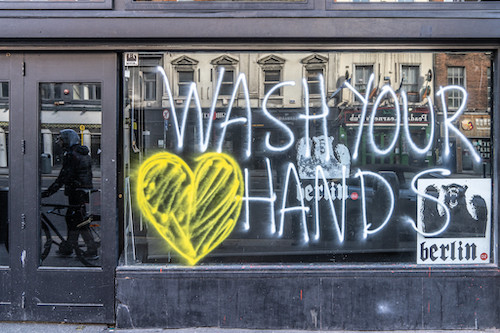As the COVID-19 pandemic affects more and more people across the globe, there are many duties that become plain to us as individuals, communities, and citizens. Many workplaces have innovated in response to these challenges, and churches have looked to the past for inspiration to bring hope to our present. Individuals have taken precautions, and government has stepped in to combat panic. There’s a lot to take in, and in this crisis, we learn about one of life’s great mysteries: how people change.
We are suspicious of change. Socrates in one of the earliest philosophical classics, Meno, wonders if virtue can be taught. Paul tells us in his Letter to the Romans that our wills are bound by sin:
For I don’t understand what I am doing. For I do not do what I want—instead, I do what I hate (Rom. 7:15).
Economists teach us through the efficient-market hypothesis that if there were to be gains made through change, that change would have already been made. We tend to forget that virtue is knowledge. For this reason Paul admonishes us to “[k]eep thinking about things above, not things on the earth, for you have died, and your life is hidden with Christ in God” (Col. 3:2-3).
We also lose sight of the fact that the only reason markets are efficient is because of the knowledge discovered by entrepreneurs through competition and the market process. This is one of the reasons why people (and societies) change slowly at first, and then all at once.
The changes to our lives caused by the COVID-19 began in a subtle way before the suspension of many religious services, restrictions on restaurants, and bans on large gatherings. I first learned, almost by osmosis, about COVID-19 back in January—first from spotty news reports coming from China (stymied by a cover-up orchestrated by the Communist regime), then from friends in Hong Kong and Europe. Then, at the end of February came the little things. I started noticing the five-pound bags of rice at the bottom of my local grocer’s shelves had disappeared, then the Clorox wipes and, inexplicably, the toilet paper. Friends and relatives in the restaurant industry were reporting business down 30 to 50 percent. Restaurants closed buffets, removed seating from dining rooms to facilitate social distancing, and started advertising takeout and selling gift cards to concerned customers who had decided to avoid dining out now but wanted to support these businesses in the future.
All of this happened before any official state action—much of it prior to the cancellation of large-scale events. People took what knowledge they had and began acting responsibly on their own initiative. Compelled by concern for themselves, their families, and their communities, people began to change. It is precisely this sort of change, oriented to the good of ourselves and our neighbors, that freedom allows.
Lord Acton famously argued for an ordered conception of freedom: “The Catholic notion, defining liberty not as the power of doing what we like, but the right of being able to do what we ought, denies that general interests can supersede individual rights.”
State action has followed on the heels of social action and has a limited role in supporting it. In crisis, however, we must always be mindful of the people at the center of our efforts to combat the COVID-19 pandemic. For it is the human person, acting according to a duty-bound conscience, from whom all lasting and transformative change must come. Liberty is nothing more, and nothing less, than the reign of conscience.
(Photo credit: William Murphy. CC BY-SA 2.0.)
